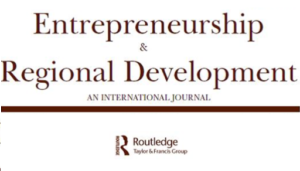Episode 87 – Josefina Jonsson – Exploring the social and spatial role of social media for community entrepreneurship
This study explores the dynamics of online community entrepreneurship, using a rural grocery store as a case study. I examine the role of social media in community entrepreneurship, revealing insights into the interplay between social interactions, spatial factors, and the entrepreneurial process. The case account outlines a process where online communities turn ideas into actions…
Read More
